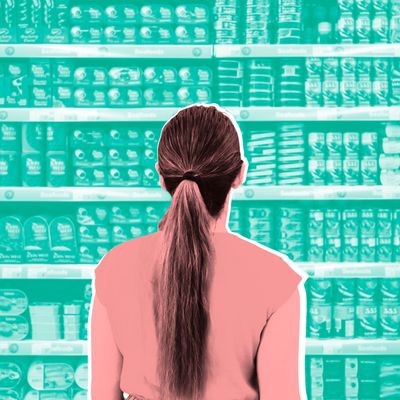
There is an established notion of the “happy idiot” — someone who doesn’t know a lot, knows he doesn’t know a lot, and doesn’t care. Think about Joey Tribbiani from Friends or Fry from Futurama. Though simple-minded and rather oblivious to their surroundings, both characters tended to come out on top. New research suggests that there may be something to this frequently invoked trope. Not knowing a lot — and being aware of your own ignorance — can make decisions easier and, as a result, lead to greater happiness.
Decisions are a big part of life in the 21st century. Never before have we had to make so many of them. Online shopping means you can purchase an item from anywhere and have it delivered conveniently to your doorstep. Dating sites like OkCupid and eHarmony give access to potential romantic partners from all around the world, while Amazon brings the world’s largest product warehouse onto your computer screen. The seemingly endless options may appear to be a blessing, but under certain circumstances, you can have too much of a good thing.
Sheena Iyengar and Mark Lepper conducted one of the first studies demonstrating the effects of “choice overload.” Using jam, essay topics, and chocolates, they found that people were more likely to make a choice — and be happy with that choice — when presented with fewer options. Paradoxically, despite the negative effects, people found the larger choice sets more appealing and enjoyable to choose from. Some have called this phenomenon the “tyranny of choice.”
But does choice overload affect everyone in the same way? In a study recently published in Psychological Science, Liat Hadar from the Arison School of Business and Sanjay Sood from UCLA conducted three separate experiments to reveal that subjective knowledge (the amount of expertise you think you have) affects the ability to choose and the level of satisfaction experienced from that choice.
The first experiment tested the effect of subjective knowledge on willingness to purchase from either a small or a large set of options. To manipulate subjective knowledge, the researchers told participants that they were part of either a group of high-school students (to make them feel knowledgeable relative to the others in their group) or a group of expert coffee-tasters (to make them feel relatively ignorant compared to the coffee pros around them). Then, the subjects chose from either a set of 5 or 25 coffees. To test their “willingness to purchase,” the researchers also asked the participants to indicate if they would prefer to take home their chosen coffee or opt for $5 instead.
The researchers found that people with low subjective knowledge — in other words, the participants who were part of a group that they felt was more expert — felt better informed after choosing from a large set than a small set, while those with high subjective knowledge — those embedded with the high-school-student group — showed the opposite effect. Too many options may have undermined the confidence of those who considered themselves experts, ultimately making the decision more difficult. People who thought they had less knowledge, however, came away feeling like they gained information when given a myriad of options.
Subjects who were primed to think they had less subjective knowledge were also more likely to take the coffee over the $5 when faced with the larger set of choices, a sign they were more confident in their choice. On the other hand, individuals who thought they knew more were less likely to choose the coffee over the $5. More confidence in one’s knowledge made decisions more difficult when faced with a large number of options.
“It’s very important to have real information and facts to rely on, especially when important decisions are at stake, and not relying on your own intuition about how knowledgeable you feel,” says Hadar. “Do a lot of research before you choose, don’t be intimidated by large choice sets, and take the advice of others who are experts who might be able to help you cross out irrelevant options.”
Decision-overload effects have implications beyond simple choices like coffee and wine. Other studies have found that individuals’ willingness to invest in retirement savings plans decrease as more options are given. While Hadar’s advice is certainly sage when it comes to big, potentially life-changing decisions, one possible way to help counteract the pernicious effects of having so many choices in general is to, well, try not to freak out so much. Choosing in today’s world of abundance isn’t always an easy task, after all. When we’re faced with shelves upon shelves of soaps, toothpastes, and laundry detergents, even shopping for basic necessities can be a daunting task. But is there really a huge difference between Colgate and Crest? Cheer or Tide? Next time, don’t be afraid to admit that there are things that you don’t know, and just pick one. It might help you actually make a decision — and be happier about it in the end.




